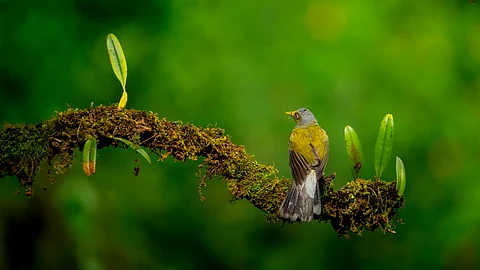
- Destinations
- Experiences
- Stay
- What's new
- Editor’s Picks
- Responsible Tourism
- CampaignsCampaigns
- Subscribe

The mighty Western Ghats, stretching approximately 1,600 kilometres along the western coast of India, traverse six states: Gujarat, Maharashtra, Goa, Karnataka, Kerala and Tamil Nadu. Recognised as a UNESCO World Heritage Site, they are one of the world's top eight biodiversity hotspots, boasting an impressive array of flora and fauna, many species of which are endemic to the region. The extraordinary biodiversity of the place underscores the immense significance of this landscape, breathing life into peninsular India. Major rivers such as the Kaveri, Godavari and Krishna originate in these hills, nourishing diverse ecosystems and sustaining nearly 250 million people. Furthermore, the Western Ghats play a crucial role in moderating the tropical climate of the region, exemplifying one of the world's finest monsoon systems.
While the statistical data about the Western Ghats is readily available, my personal experiences in this region have profoundly impacted me. The Western Ghats feel like a second home, drawing me back time and again. My connection to nature has deepened significantly during my explorations in this vibrant region, alive with the sounds and sights of diverse species. From tropical rainforests and freshwater systems to grasslands and cloud forests, the varied ecosystems here have taught me invaluable lessons about the natural world.
The Western Ghats boast an impressive variety of life. With over 500 species of birds and numerous mammals, reptiles, amphibians and invertebrates, this region is nothing short of mesmerising. Having spent over 15 years exploring this biodiversity hotspot, I have accumulated countless cherished memories. Each visit offers moments of discovery and exhilaration and has shaped my identity in profound ways. Trekking through the hills, I have encountered wildlife in its rawest form: curious birds following my path, a black panther crossing my trail and even being surrounded by a herd of elephants. The haunting beauty of the forests often leaves me feeling as though I am in a dream, and tranquil nights spent lying on the forest floor, gazing at the stars, are memories etched into my soul. Every sunrise and sunset witnessed here leaves a lasting impression that resonates deeply within me.
However, despite its beauty, the Western Ghats face alarming threats primarily due to human activities. Rampant deforestation and land conversion for agriculture significantly impact this vital ecosystem. Fortunately, these issues have prompted strategic responses from forest departments and local NGOs, working collaboratively to mitigate mass encroachment on forest lands. Still, instances of ecological degradation persist, highlighting the need for ongoing vigilance.
Pollution remains one of the most pressing concerns, exacerbated by irresponsible tourist behaviour. As visitors, we must acknowledge our role in preserving these sacred sites. The older generations of locals demonstrate a profound connection with nature, having coexisted harmoniously with it for years. In contrast, the younger generation appears increasingly influenced by the habits of visitors. It is vital to remember that we are guests in the cradle of Mother Nature. The footprints we leave behind should be ones that nature can naturally wash away. Simple, thoughtful actions on our part can significantly impact the preservation of this region.
Thus, I urge everyone to consider their role in protecting the Western Ghats and ensure that their natural beauty endures for generations to come. I crafted a short poem to remind us about the work we need to do to preserve this amazing place:
Step up to meet an expectation,
Step down to understand an emotion,
Step out to witness a creation,
Step in to form an opinion,
Step away to avoid confusion,
Steps create progression.
Sanket Reddy is a renowned wildlife photographer from Bengaluru. You can follow him on Instagram @isanketreddy.
